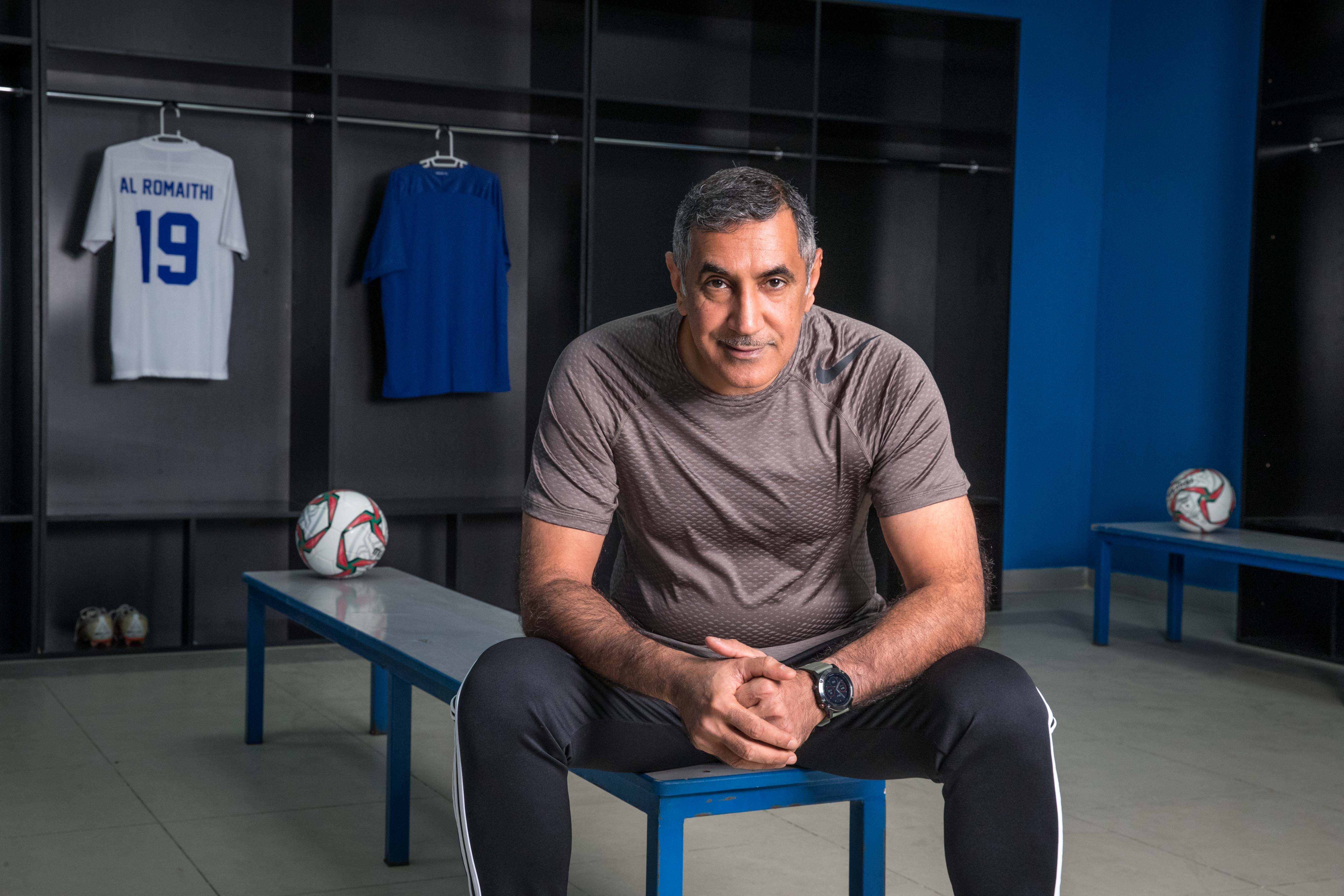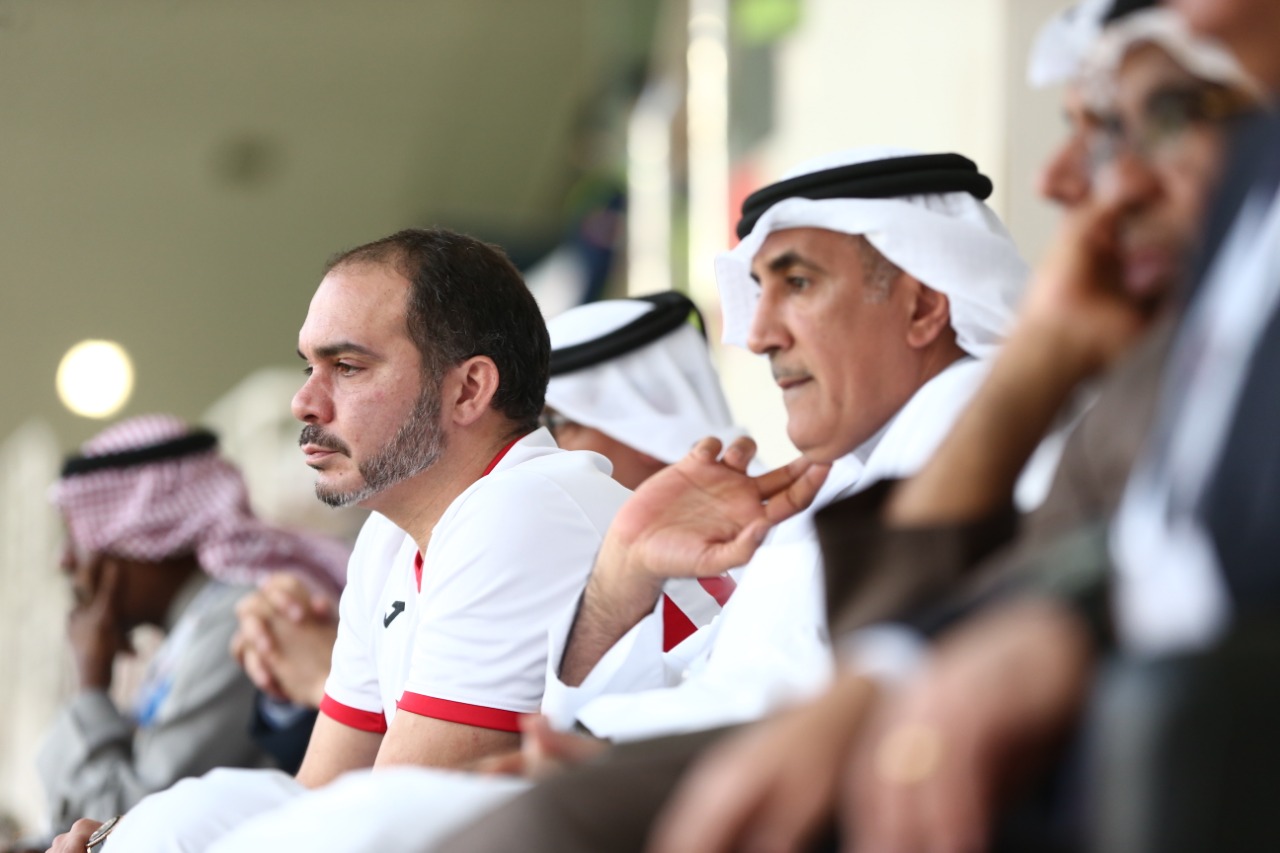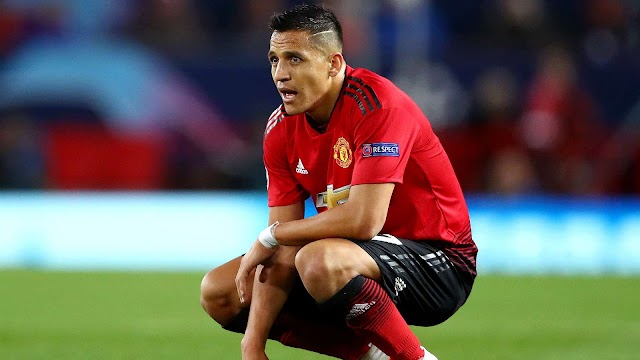The man hoping to upstage current Asian Football Confederation (AFC) President Shaikh Salman from securing a third consecutive term believes the time is ripe to bring about a change in leadership and simultaneously – a fresh approach to improving the Asian game.
HE Mohammad Khalfan Al-Romaithi, Chairman of UAE General Authority for Sport, believes his experience in the sports dating back to couple of decades, places him in a perfect position to bid for the Presidential seat.
“I cannot go into details but if I didn’t have the programs, the initiatives and the ideas to run for the Presidency, I wouldn’t. So I think my 20+ years of experience in football along with the fact that I have the right like anybody else to apply for Presidency of the AFC makes me a viable candidate,” explained Mr. Al-Romaithi who will be releasing his strategic manifesto prior to elections as regulated by the AFC.
While, Shaikh Salman is strongly backed by certain Member Association's (MA) based on relationships built within the AFC stronghold since initially serving the final two years of Bin Hammam's term in 2013 and then being elected for a full four-year stint in 2015, HE Al-Romaithi respects his relationship with Shaikh Salman will rely on his ability to go to these MA’s and try to convince them understanding that it will be a challenge.
“In all fields there are going to be challenges,” says Mr. Al-Romaithi “but you have to think, have to be very clear, very transparent and try to persuade people because that is what the role entails. I want them to look at my programs and compare it to others and make a decision based on the best program. Not based on my name or who I am.”
But HE Al-Romaithi is not afraid to tackle any challenges head-on as he illuminated on the several positions he had held in the past since transitioning off from being a footballer in his younger days to being the President of the UAE FA to being chosen to lead the Abu Dhabi Police. The humble, soft spoken Al-Romaithi exhibited extreme confidence, yet simplified it with his welcoming nature, in his ability to contest for the position.
“Challenges are something normal for me. As an example, I just stepped down from my job as Chief of Abu Dhabi police, nothing changed, a new commander came in and business is as usual. I feel that I am very well equipped, I have a very good team with me and back all of that with my experience, so I think I am a very strong candidate,” described Mr. Al-Romaithi.
As chairman of the General Authority of Sports in UAE, HE Al-Romaithi certainly sees himself as been lucky to have been part of the growth of sports across the country. But given the significance of the sport of football in bridging people, and more specifically hosting such an event in the United Arab Emirates, as head of the AFC Asian Cup Local Organising Committee, he is truly appreciative of what the Asian Cup and his rival had accomplished thus far.
“I like the format, something that I had imagined a few years ago. Now, I think this is a good look for the AFC and Shaikh Salman did well,” said Mr. Al-Romaithi going on to address a minor hindrance in the current format.
“The setback I heard from people was about the movement of teams, playing in one stadium and then moving to another city to play. Logistically it was tiring for the teams and the organizers. The group stage was hectic for everybody including the organizers. I hope the AFC looks at this in the future,” explained Mr. Al-Romaithi.
The UAE’s sports Chief also clarified his recent statement suggesting being open to co-hosting the 2022 World Cup if FIFA President Gianni Infantino’s pitch to grow the next edition from 32 to 48 teams is successful.
“Regarding the 48, this is the issue between FIFA and Qatar. I am not in a position to make a decision as I am not in FIFA nor am I involved in the conversations. But my immediate thought is that, co-hosting while we are living in this political tension, will not happen. It cannot happen. Only Kuwait and Oman can help with co-hosting. I believe the quality of infrastructure of these two nations will also need to adhere to FIFA regulations,” said Mr. Al-Romaithi as he expanded upon the issue.
The political tension HE Al-Romaithi is referring to is the boycott of Qatarintroduced by three GCC nations (Saudi Arabia, the UAE and Bahrain) along with Egypt in mid-2017 accusing the former of supporting terrorism, which it continues to deny.
However, he was also open to the idea if everything returned to normal between the nations involved.
“Of course, if the decision is made by FIFA and the Qataris agree and if the problem in the Gulf is solved, then we can. No issues,” stated Mr. Al-Romaithi.

For a small country like Qatar to win the World Cup was a dream come true aside from the significance of the host nation, in terms of all the exposure it has brought to the region. In fact, HE Al-Romaithi was among the first few from the region to celebrate the historic achievement when the announcement was made in 2010. But as political strains have surfaced in the region since then, the relationship would certainly be effected?
“Look, I am very happy that Qatar had won. I was one of the first few people to congratulate the Qatari team. And I still believe that Qatar should host the World Cup and if I become the President, I will also support them. I will go to the Qatari FA and listen to them and help them with whatever they need from the AFC,” stated Mr. Al-Romaithi, clearly distinguishing his role in relation to Qatar as a possible AFC President.
Given the size of the continent, one of the major issues being faced by the confederation is the dissemination of resources to less developed nations to boost the concept of play among of them.
An appropriate level of importance needs to be placed in balancing the allocation of resources (technical knowhow, infrastructure, financial, etc.) across the various blocks present within the AFC. HE Al-Romaithi obviously states his intention to see more Asian countries that make a name for themselves rather than the six or seven that normally stand out realizing that AFC has the capacity to do more in bringing in more money.
“I know more than 40 Asian countries need support and more financial support. I think AFC should try to bring more money. For example, if you can get more money you can help smaller nations with infrastructure, let them have their tools to develop the game in their country. I think the future will be better. I really want to bring the level up and that requires funds and sponsorship and proper utilization of those,” explained Mr. Al-Romaithi.
Women’s football across most of Asia has had to battle cultural influence for a long time. The development of women’s football has only seen a gradual improvement in the past few years as AFC exhibits importance on growing the women’s game. However, more needs to be done. While HE Al-Romaithi would need more time to highlight his overall thoughts on how he would approach the matter, the experienced official believes that the women’s game deserves an equal push and nothing less.
“Women’s football should be put in the same platform. What I am saying is that whatever is done for men should be done for women,” said Mr. Al-Romaithi.
To conclude with, we touched upon the most pressing matter that has been dogging the Asian Cup involving two of the nations which participated in the tournament in the United Arab Emirates.
Thailand is currently under scrutiny for a refugee crisis involving a Bahraini footballer named Hakeem Al-Araibi. The dissident, now an Australian resident, had claimed he was confined and tortured by authorities cracking down on outspoken athletes during the 2011 rallies that plagued the island country in the Arabian Gulf.
In November last year, he was arrested and imprisoned on arrival by the Thai officials on the basis of an Interpol red notice (resembling an international arrest warrant) which was placed under his name by the Bahraini authorities as he and his wife traveled to Thailand for a vacation.

The incident taking placed within the AFC constituency, there was a lack of urgency shown in addressing the issue. AFC’s response was generated almost two months later, after significant push from regional and international media and high-profile individuals including Prince Ali bin Al Hussein of Jordan, with the VP of the confederation, Praful Patel, issuing out a memo on behalf of the ‘Western block’ calling for the Al-Araibi to be returned safely to Australia.
HE Al-Romaithi was clear on what his approach would be in regards to the matter.
“Look I don’t the details of the story of this player, but one of the mandates of the AFC is to help players round the continent in any place. I think AFC should get involved as AFC is mandated to do so. They should try to come up with something to solve the problem,” stated Mr Al-Romaithi.
When pushed on what he would do as President, Al-Romaithi iterated.
“As I said, a mandate within the AFC exists, I will help him.”
A short brief about HE Mohammed Khalfan Al-Romaithi:
He has been at the heart of the Asian sports community for over 20 years. Under his stewardship, the UAE had become a regional sports pioneer – culminating this year with the hosting of the AFC Asian Cup in the UAE, which followed two successful FIFA Club World Cup tournaments in 2017 & 2018. It all started as a youngster for Al-Romaithi who represented Al Ain Football Club – the UAE’s most successful domestic team – at youth level and three decades later returned to his childhood club as its General Secretary before eventually becoming Chairman of the Board in 2001.
Between 2000 and 2005, Al-Romaithi transformed the club, leading it to three domestic titles, a President’s Cup and an AFC Champions League title. Towards the end of his tenure he was appointed as Vice Chairman of the UAE FA and from 2005 – 2008 became a member of the UAE’s National Olympic Committee (NOC), where he helped develop, promote and protect the Olympic movement in the UAE. A year into this role, Al Romaithi also took on the responsibility of Deputy Chairman of the General Authority for Youth Sport & Welfare – focusing on his passion for developing football at a grassroots level.
After his membership on the NOC, Al-Romaithi served as President of the UAE Football Association, overseeing a ‘golden era’ for UAE football. Watershed moments were seen in both the youth and women’s game, with their respective teams winning a number of high profile tournaments including the U19 AFC Championship and the 3rd WAFF Women’s Championship. The UAE’s youth teams also qualified for both the 2009 FIFA U20 and U17 World Cup and the AFC U16 and U19 Championship.
In 2009, and again in 2010, Al-Romaithi was appointed Chairman of the Local Organising Committee for the FIFA Club World Cup. During this period, he also oversaw the delivery of the FIFA Beach Soccer World Cup in Dubai and the WAFF Women’s Championship. Alongside his LOC role, Al-Romaithi was appointed President of the AFC Ad-hoc Committee for Member Associations, ensuring good governance across the Confederation. The role also saw Al-Romaithi assist in the development of constitutions and advise on crisis scenarios within the AFC, before he vacated the role in 2011.
In 2015, Al-Romaithi was elected as a member of the AFC Executive Committee, and became Chairman of the AFC Development Committee, responsible for the distribution of funds for football development across Asia. In addition to his AFC Executive Committee membership, Al-Romaithi is the current Chairman of the UAE General Authority of Sports and the Vice President of the Local Organising Committee for the AFC Asian Cup UAE 2019. In December 2018, he announced his intention to run for the candidacy for President of the Asian Football Confederation.








0 Comments